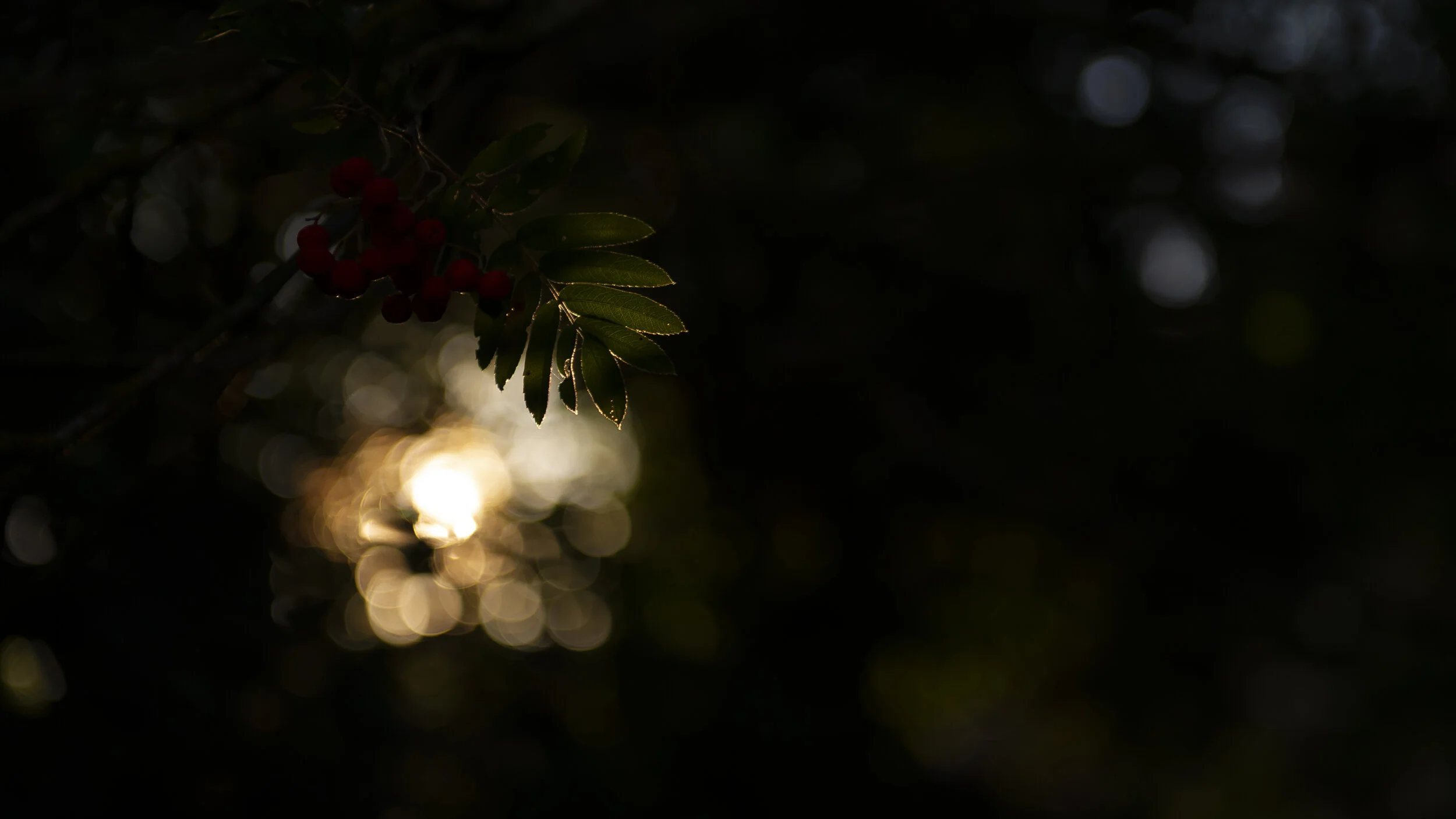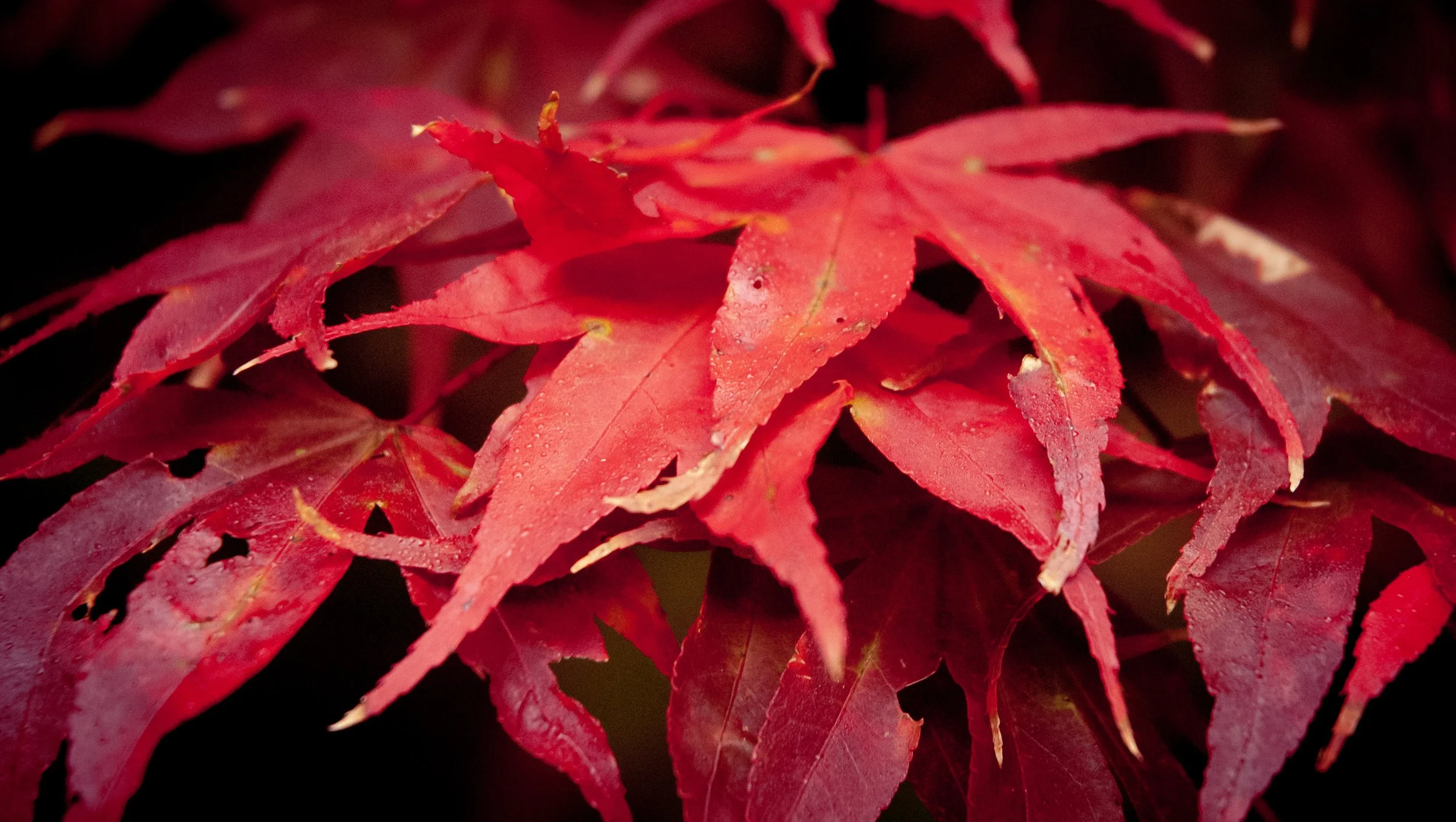Glimpses
Morning: Nikon D33s
“Photographs, which cannot themselves explain anything, are inexhaustible invitations to deduction, speculation and fantasy.”
(Susan Sontag)
Glimpses are an invitation.
Little surprises that offer the possibility of pensive reflection; attention, an opportunity to consider what moves us and who we are.
And so, if we explore slowly enough, an early morning wander is interrupted by: ‘Oh, look….’
…At the light. The dark. Leaves. Red berries in shadows. A sudden appreciation of cool morning air. A pause. Then we take another step and look away…
As Rilke said, "An image enters in, plunges into the heart and is gone."
I’ve come to know these momentary glimpses as an interruption in the pattern of my every day experience; a chance to (re)consider the normality of life and a sightline into the potential for difference.
My reflex action is to reach for a camera before the image is lost. In fact, the act of photographing becomes almost pre-cognitive; I don’t really know what I’m doing but there is something in the moment, in the unfolding image before me, that will reward later attention.
In Camera Lucida, Roland Barthes describes the ‘punctum’ of a photograph; an unintentional detail that pricks the viewer and provides a chance for mystery and wonder. He says; “Nothing surprising, then, if despite its clarity, the punctum should be revealed after the fact, when the photograph is no longer in front of me and I think back.”
So I take time to indulge my curiosity, looking back through my photographs, asking “What was that….?” On other days, I review my journal notes, looking for instances of puzzlement or surprise, the outlier moments of experience where I find myself confused, baffled.
I’m learning that there is a skill in finding wonder in the mundane, everyday, routine yet overlooked moments. Practice, discipline and repetition help us to foster preparedness, receptivity and openness such that we might allow ourselves to be gently disturbed.
We can easily believe that we will find solutions in grandiose gestures; a vision quest, a conference or a glitzy corporate set piece (add a keynote speaker for good measure…).
Yet I wonder if we might accept the invitation to inquiry posed by our momentary glimpses into the otherwise ordinary?
Notes:
My early morning walks bring an appreciation of Arundhati Roy’s oft quoted words in War Talk: “Another world is not only possible, she is on her way. On a quiet day, I can hear her breathing.”
I love thinkers who ‘complexify’ our world for us; who lead us to question the beliefs and ideologies we hold. My first encounter with Roland Barthes’ work was through ‘Mythologies’; ‘Essays on the codings that command our daily life…’. Even though it dates back to the 1950s, the messages and examples still have relevance. Camera Lucida is Barthes’ final book, and shows us how our sense of imagery seems to work and, ultimately, changes how we see…
In ‘Steps to an Ecology of Mind,’ anthropologies and social scientist Gregory Bateson speaks of ‘the difference that makes a difference.’ He makes the point that ‘the word “idea,” in its most elementary sense, is synonymous with difference and asks, as we encounter an infinite amount of information, where is ‘the difference that makes a difference?’















